Dr Felipe Karam Teixeira Transposable Elements and the DNA damage response during germline development
invité par Pierre BADUEL - Section Ecologie et Biologie de l’Evolution
12h
Le séminaire du Dr Felipe Karam Teixeira (University of Cambridge) aura lieu dans la salle Favard, IBENS 46 rue d’Ulm 75005 Paris
The germline is the cell lineage responsible for the inheritance of genetic information in multicellular eukaryotes. In most animal species, germ cells are set aside from somatic lineages during early development and follow a unique developmental path that culminates in the production of haploid gametes carrying the genetic material passed to the next generation. Due to its central role in genetic inheritance, the germline is known to be the battleground where genetic conflicts between selfish DNA modules, such as transposable elements (TEs), and the host genome take place. Excessive TE activity, which aims to fulfil the selfish drive of TEs to increase in copy number per genome, can impair genome integrity and functioning, thereby threatening the faithful transmission of genetic information. Our group uses Drosophila species as a model for dissecting transposon regulation and the consequences of TE invasions in animals. In particular, we used this system to understand the molecular principles by which germ cells use small RNA-based pathways to protect their genomes against transposable elements and how germ cells sense and respond to DNA damage once transposons evade the protective mechanisms.


